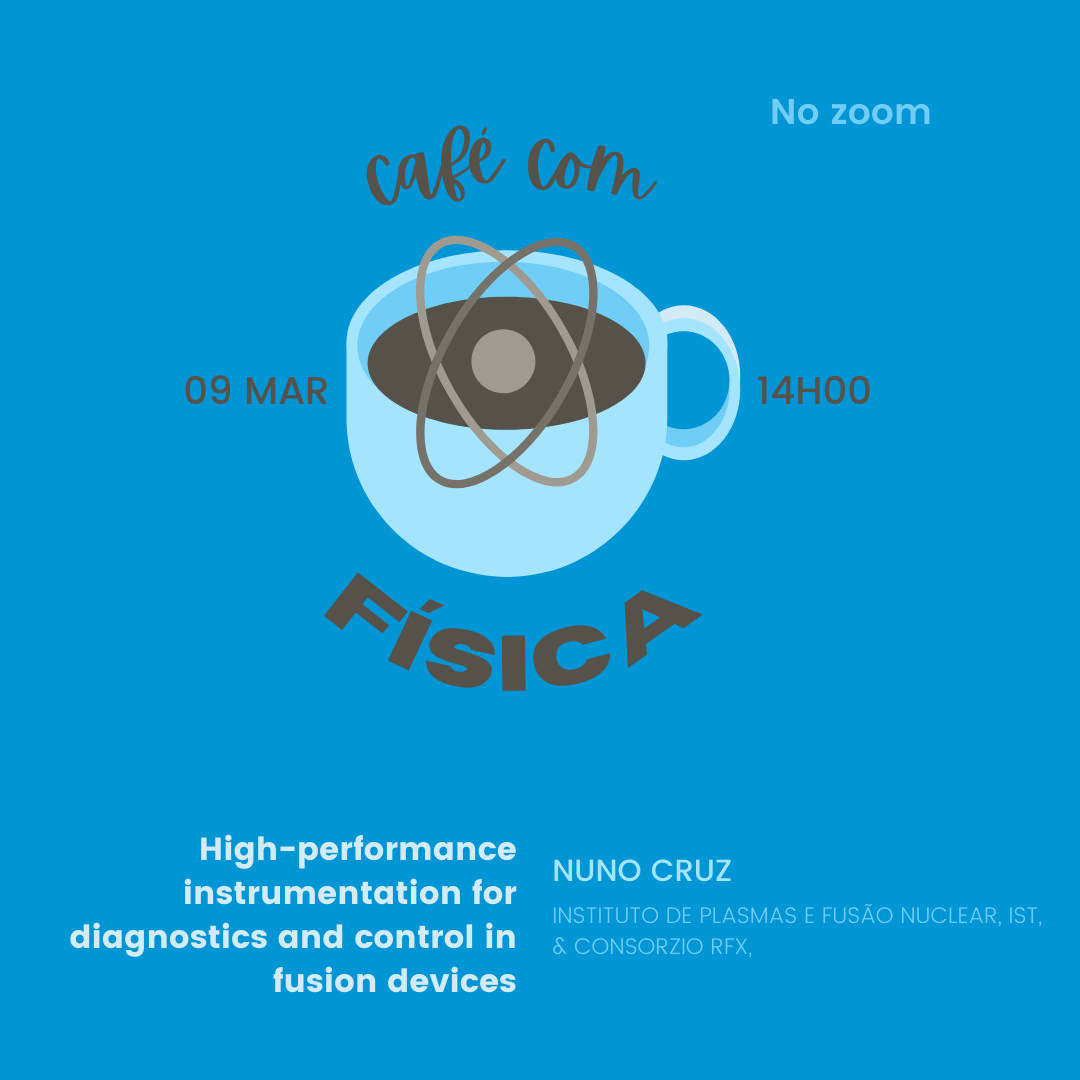High-performance instrumentation for diagnostics and control in fusion devices
by
Sala de Conferências
Departamento de Física FCTUC

The ITER project demanding operating conditions, as well as other enabling experiments (including the recent fusion record breaking experiment - Joint European Torus) in relevant fusion projects, present new challenges to the diagnostics, control and instrumentation. The most critical requirements relate to the high acquisition rates (up to some gigasample per second), high physical event rate (up to several megaevents per second), need to handle enormous quantities of data in long experimental pulses (up to 30 minutes) and highly complex control and diagnostic algorithms. Radiation hardness of all equipment involved must also be taken into account for high magnetic
fields as well as neutron irradiation in the fusion devices port cells.
The implementation of state-of-the-art designs was tested both with in-house built prototypes and complete systems installed in the major international fusion experiments. The main technologies used include Advanced Telecommunications Computing Architecture (ATCA), high speed electronic devices for signal digitization, complex real-time algorithms for physics analysis, control and data compression implemented in high-performance computing using field-programmable gate arrays and multicore processor architectures.
The control and data acquisition group at Instituto de Plasmas e Fusao Nuclear (Instituto Superior Técnico) in collaboration with LIBPhys-UC (Departamento de Física da Universidade de Coimbra) has conducted several projects and studies for the development of reliable high-performance processing tools and instrumentation for the diagnostics and control of fusion devices capable of complying with the most demanding requirements.
Biography:
Nuno Cruz holds a degree in Physics Engineering from the University of Coimbra and an MSc degree from Técnico. Nuno completed his PhD degree with Instituto Superior Técnico (University of Lisbon) in collaboration with École Polytechnique Fédérale de Lausanne, one of the world top Engineering and Technology Universities. He integrates several international EUROfusion teams: the Medium Sized Tokamaks (MST1) Team; the Work Package for the JT-60SA (WPSA) Team, the JET Tokamak Team, the TCV Tokamak Team and the Fusion for Energy (F4E) Radial Neutron Camera (RNC) Consortium. More recently, he has integrated the EUROfusion Work Package on Preparation of ITER Operation (WP-PrIO) Team becoming the portuguese scientific contact person for this WP.
He has experience in the design, implementation, integration and commissioning of control and data acquisition systems for fusion diagnostics in different fusion devices, with several international collaborations including FTU at ENEA-Italy, JET at CCFE-United Kingdom, TCV at EPFL-Switzerland, ITER, JT-60SA in Japan, F4E Barcelona, IFMIF-LIPAc in Rokkasho Japan and ITER NBTF in Padova. Recent research activities funded by F4E and EUROfusion include the design and development of high performance software and algorithms for the ITER RNC, algorithms for ELM mitigation using vertical plasma kicks in TCV, optimal control for plasma vertical stabilization, plasma shape control and magnetic control tools for JT-60SA.
Nuno Cruz currently holds an EUROfusion secondment contract to work as an I&C expert for the ITER Neutral Beam Test Facility in Padova, Italy. Nuno also holds a permanent researcher faculty position at the Physics Department of Instituto Superior Técnico and is a member of the Associated Laboratory Instituto de Plasmas e Fusão Nuclear.
Sala zoom:
https://videoconf-colibri.zoom.us/s/89261762895
ID da reunião: 89261762895
Password: 055056
Paulo Brás e Pedro Costa